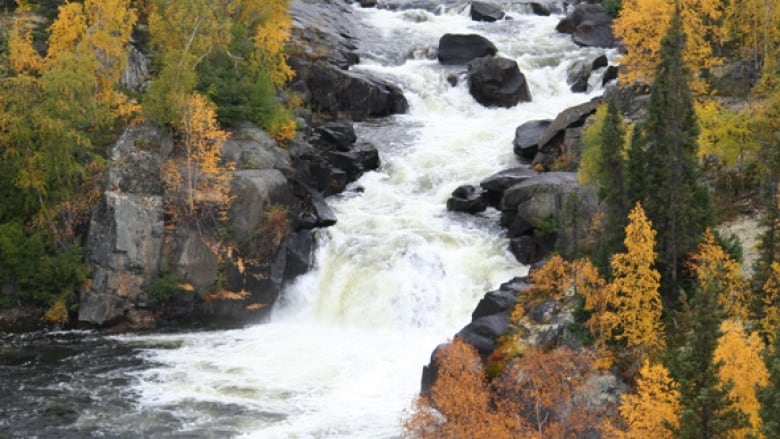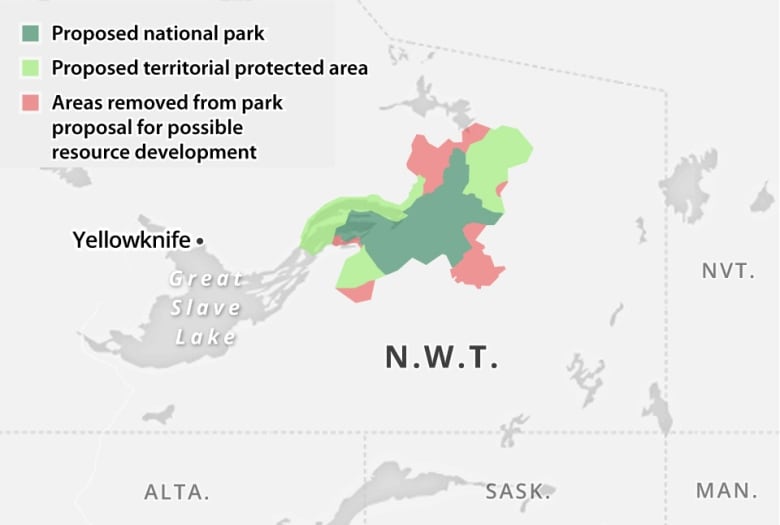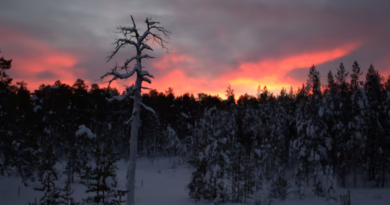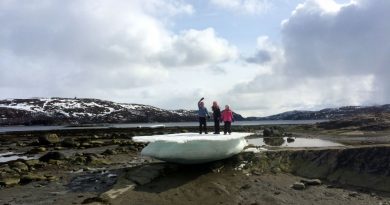First Nation in Canada’s Northwest Territories votes to support creation of national park reserve

Members of the Lutsel K’e Dene First Nation voted in favour of the proposed Thaidene Nene National Park Reserve on Monday. They approved agreements between the community, the government of Canada and the government of the Northwest Territories to create the park.
Steven Nitah, lead negotiator for the Lutsel K’e Dene First Nation, said 89 per cent of voters supported a resolution for chief and council to “finalize and establish Thaidene Nene in partnership with Parks Canada and the government of the Northwest Territories.”
More than 19 years of negotiation have gone into the creation of Thaidene Nene, a proposed park touted as what would be the most progressive protected area in Canada. Thaidene Nene is 26,376 square kilometres of land northeast of Lutselk’e. Its core would be a national park, with a territorially protected area surrounding that.
The vote was not a formal legal step in the negotiation process, but Nitah said it is important for the community.
“First Nations governments have their own way of making decisions and [in] Lutselk’e we’re a very democratic community when it comes to lands and resources,” Nitah said.
“It’s the members that have the final say and they give direction to the chief and council on what that say is.”

Elder JC Catholique said he did the fire-feeding ceremony when negotiations for the park began 10 years ago.
He said when the results of the vote came in, it was a “happy time.”
“Towards the end of the hearings, the last month or so, you could feel that excitement that people are ready to go for it. So there was a moment of excitement. Yes, it’s going to be positive.”
Indigenous perspective on Treaty 8
Nitah said the agreements reflect the First Nation’s understanding of its treaty relationship with the federal government and its relationship with the territorial government. The First Nation signed on to Treaty 8 in Fort Resolution in 1900.
“We agreed to share the lands, resources and the responsibilities to manage and benefit from that relationship,” Nitah said.
“What we’ve done … is articulate what we believe that treaty relationship was supposed to be going back to 1900 … from our perspective as an Indigenous people.
“What we’ve negotiated is the protection of Thaidene Nene and the protection of the Dene way of life within Thaidene Nene.”
Nitah has previously said Thaidene Nene would create a “conservation economy” in Lutselk’e — the park reserve would create 18 jobs in the community, including eight full-time positions.

Thaidene Nene includes both boreal forest and tundra threaded with lakes, rivers and waterfalls. The east arm of Great Slave Lake boasts spectacular cliffs and islands and some of the deepest freshwater in North America.
Catholique said the agreement will protect “a really unique place.”
“It’s really pristine, like, clean and good water, lots of animals. Historical. That’s where most of the families from Lutselk’e are from there. Spiritual too.”
Catholique said it feels good to know spiritually-important areas will be protected from development. He believes his ancestors were guiding the community as they made their decision.
“That land is going to be protected for my children, for their children, for the future generations of our community, for our nation,” he said.
About 14,000 square kilometres of Thaidene Nene is to be managed as a national park. Another 12,000 square kilometres under territorial control would have similar protections to the national park.
Steps remain before Thaidene Nene is formally established. According to a spokesperson with the territorial government, legislation governing a new Protected Areas Act must first be made law.
The government expects to approve the legislation this year.
With files from Loren McGinnis and Michael Hugall
Related stories from around the North:
Canada: Canada wants to up collaboration with First Nations, Inuit, Métis on national parks, Eye on the Arctic
Finland: Finland’s national parks popular despite poor maintenance, Yle News
Norway: WWF urges Norway to protect its Arctic forests to help fight climate change, The Independent Barents Observer
Russia: Russia adds small Arctic island to large national park, The Independent Barents Observer
United States: U.S. Gov quietly allows land survey in Alaskan wildlife refuge, enviro groups furious, Alaska Public Media



